
The Dark Flood Rises is the 19th novel of Margaret Drabble, and was first published in 2016.

The Dark Flood Rises is the 19th novel of Margaret Drabble, and was first published in 2016.
The title of the book is a quotation from a poem, The Ship of Death, by D. H. Lawrence about mortality: “Piecemeal the body dies, and the timid soul/has her footing washed away, as the dark flood rises.” The main theme is growing old and dying. It is told from multiple viewpoints, all of people linked in some way to Francesca (Fran) Stubbs, an elderly woman who does occasional work for a charity on aspects of living accommodation for the old. There is no strong plot: rather the book conveys different experiences of, and attitudes to, the twilight years of life, with the past histories of the main characters' lives being gradually revealed. In the background are two major contemporary concerns - climate change and the refugee crisis of the years during which it was written, to which there are frequent references: the flood in the title is also a reference to the effects of climate change and to the seas on which many refugees sought to escape to Europe. There is also mention of other potential ecological catastrophes, over which Fran's daughter Poppet is very concerned.
Critical reaction to the book was generally favourable. Reviewers remarked on the relative absence of plot, the mordant wit with which the theme is lightened, and the way the narrative approach, with its multiple viewpoints, mirrors the wanderings of Fran's own mind. The reviewer for The Independent described the book as "witty and intelligent but ultimately uncomfortable, melancholic and rather doom-laden work. It’s not a particularly easy book to read, but it is brimming with relevance." [1] The Guardian reviewer wrote, "beneath the apparently placid surface, Drabble’s novel seethes with apocalyptic intent." [2] The New York Times reviewer summed up the book: "this humane and masterly novel by one of Britain’s most dazzling writers is something else as well, deeper than mere philosophy: a praisesong for the tragical human predicament exactly as it has been ordained on Earth, our terminal house." [3]

Enoch Arnold Bennett was an English author, best known as a novelist. He wrote prolifically: between the 1890s and the 1930s he completed 34 novels, seven volumes of short stories, 13 plays, and a daily journal totalling more than a million words. He wrote articles and stories for more than 100 newspapers and periodicals, worked in and briefly ran the Ministry of Information in the First World War, and wrote for the cinema in the 1920s. The sales of his books were substantial, and he was the most financially successful British author of his day.

Dame Margaret Drabble, Lady Holroyd, is an English biographer, novelist and short story writer.
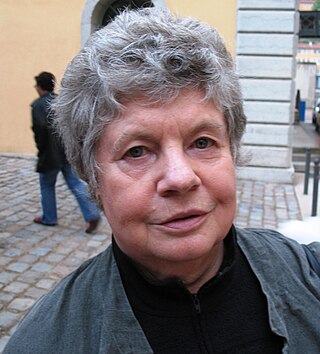
Dame Antonia Susan Duffy, known professionally by her former marriage name as A. S. Byatt, is an English critic, novelist, poet and short story writer. Her books have been widely translated, into more than thirty languages.
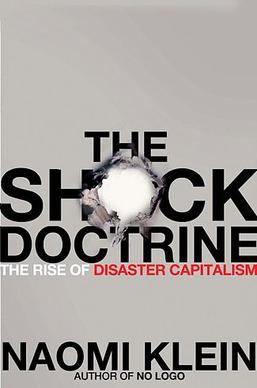
The Shock Doctrine: The Rise of Disaster Capitalism is a 2007 book by the Canadian author and social activist Naomi Klein. In the book, Klein argues that neoliberal free market policies have risen to prominence in some developed countries because of a deliberate strategy of "shock therapy". This centers on the exploitation of national crises to establish controversial and questionable policies, while citizens are too distracted to engage and develop an adequate response, and resist effectively. The book advances the idea that some man-made events, such as the Iraq War, were undertaken with the intention of pushing through such unpopular policies in their wake.

The Year of the Flood is a novel by Canadian author Margaret Atwood, the second book of her dystopian trilogy, released on September 22, 2009, in Canada and the United States, and on September 7, 2009, in the United Kingdom. The novel was mentioned in numerous newspaper review articles looking forward to notable fiction of 2009.
The Nick Stone Missions are a series of action thriller novels written by author Andy McNab, based on his own experiences in the SAS. The first book in the series, Remote Control was published in February 1998 by Transworld Publishers under their Corgi imprint.

The Peppered Moth is a 2000 novel by English writer Margaret Drabble; it is her fourteenth published novel. The novel follows the fictional experiences of three generations of women within one family, and contains several elements that are loosely based on Drabble's own biographical experience.

The Witch of Exmoor is a 1996 novel by Margaret Drabble. The novel is a social novel, with a focus on exploring the state of post-Thatcher Britain through the Dickensian satire of the Palmer family. The title describes the satirical protagonist, Frieda Palmer, who provides the source of much of the social commentary.
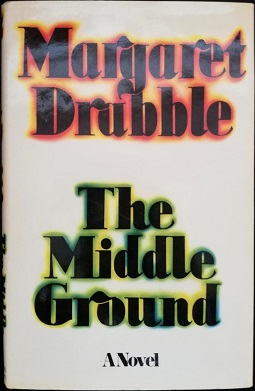
The Middle Ground is a 1980 novel by British novelist Margaret Drabble. It is her ninth published novel. The novel explores the "crisis of British urban life" through the eyes of a middle aged journalist, Kate Armstrong.

The Red Queen is a 2004 novel by British novelist Margaret Drabble. The novel describes the trip of a British academic on a trip to Seoul to give a paper at a conference. At the beginning of the novel, the academic, Dr. Babs Halliwell, reads the memoir of a 19th-century Korean princess.
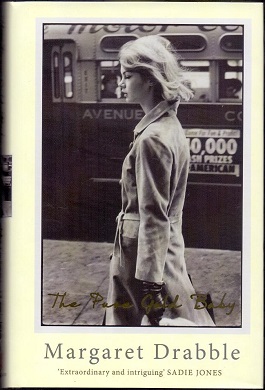
The Pure Gold Baby is British novelist Margaret Drabble's 18th novel, first published in 2013. The novel was her first novel to be published in seven years, following The Sea Lady. In 2009, Drabble had pledged not to write fiction again, for fear of "repeating herself."
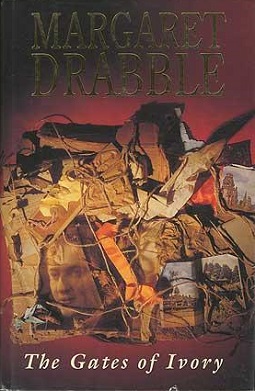
The Gates of Ivory is a 1991 novel by novelist Margaret Drabble. The novel is the third in a series of novels, following The Radiant Way and A Natural Curiosity. The novel continues the stories of several middle aged intellectuals introduced in the last two novels. The novel also introduces a new character, Stephen Cox who is loosely based on J.G. Farrell.

The Needle's Eye is a 1972 novel by British novelist Margaret Drabble. The novel was well received by reviewers, like contemporary novelist Joyce Carol Oates. Though it was her fifth novel, Drabble described it as her first time that she could "actually write a novel" expressing what she wanted to write.
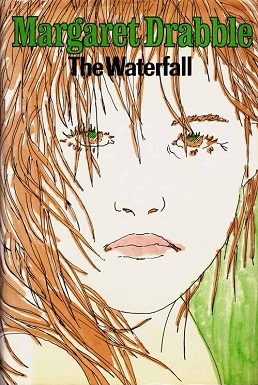
The Waterfall is a 1969 novel by British novelist Margaret Drabble. The novel is one of Drabble's more experimental narratives, starting as a third person narrative but quickly dominated by a first person protagonist Jane Gray, to guide the reader through her love affair and life.

The Realms of Gold is a 1975 novel by British novelist Margaret Drabble. The novel explores the mid-life experiences of anthropologist Frances Wingate and her affair with Karel Schmidt.
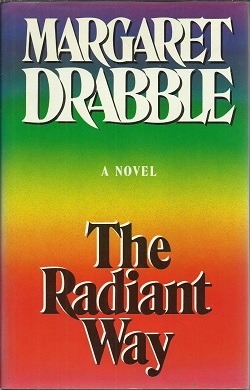
The Radiant Way is a 1987 novel by British novelist Margaret Drabble. The novel provides social commentary and critique of 1980s Britain, by exploring the lives of three Cambridge-educated women with careers as knowledge professionals.

The Seven Sisters is a 1992 novel by British novelist Margaret Drabble. The novel reflects on a mid-life crisis of an estranged Candida, when she moves to a rundown London apartment. The novel largely follows Candida's evasive and sometimes deceptive representation of events, including an epistolary section which is her "computer diary".
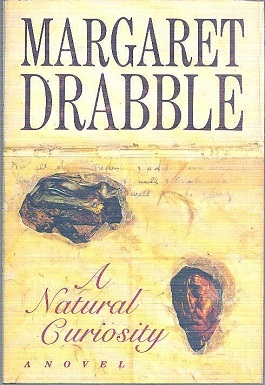
A Natural Curiosity is a 1989 novel by Margaret Drabble. The novel is an unintended sequel to Drabble's 1987 novel The Radiant Way, follows the lives of the three protagonist women first introduced in that novel. The novel continues Drabble's interest in exploring the contemporary experience of the British middle class through the eyes of women.
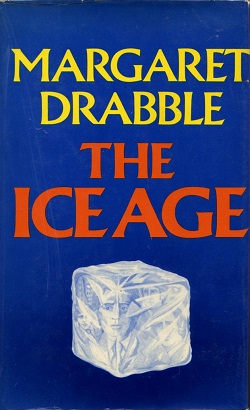
The Ice Age is a 1977 novel by British novelist Margaret Drabble. The novel follows the experiences of former BBC producer Anthony Keating as he experiences the ups and downs of life during the 1960s and 1970s. Depicting the property crisis in Britain during that period, novel diverges from her earlier psychological studies of individuals, focusing more on the "state of England".
The Grim Smile of the Five Towns is the second major collection of stories written by Arnold Bennett. The book first appeared in print in June 1907. Only around half of the stories had previously appeared in print. The five towns of the title are the conurbation of Stoke-on-Trent in which much of the writer's best work is set.